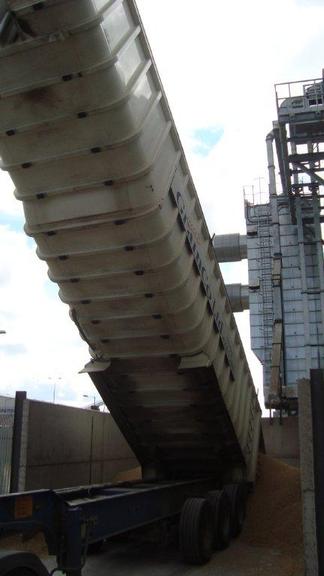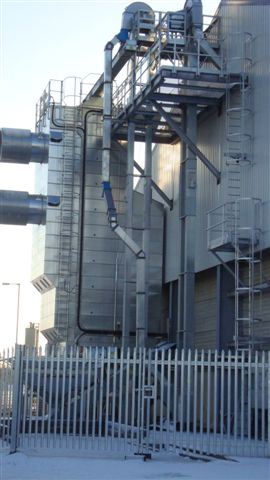Base de Datos de Proyectos de PDR
Tynegrain grain drying facility
Summary
Tynegrain cooperative improved its grain drying capacity and benefited through reduced costs, access to new markets and reduced energy consumption. Its clients (arable farmers) also benefit as they now receive a more efficient grain drying service.
Background
Tynegrain Ltd was established in 1983 and is a farmer owned co-operative storage, processing (75,000 tonne capacity) and marketing facility with 114 members in the North East region. However as farmers nowadays harvest their crops so quickly, the drying capacity could not handle the grain at the speed at which it arrived. In 2009, the company designed a development strategy for increasing its storage capacity. This project was part of this strategy and responded to the need to improve capacity.
Objective
This project aimed to add new grain drying facilities, which will open up valuable new markets for the crops of farmers in the North East. As well as improving the drying capacity it also aimed to improve intake capacity and therefore serve its customers (crops farmers) more efficiently and eventually enable the company to capture new markets.
Main activities
This project had two main activities; the first was the installation of new high standard grain dryers and the second was the construction of a new intake pit.The project was varied twice to improve the specification of the equipment being installed and in one case, the new equipment (an intake pit) doubled the performance of the grain dryer by allowing a continuous, rather than interrupted, flow of grain to be processed.
Results & Benefits
The company reduced costs due to the quicker turnaround of grain and entered into supply agreements with large branded food businesses, which it had been unable to do before. The project proved a good way to ‘strategically support a larger groups of farmers in North East England. It helped a significant farmer cooperative access new markets and raise product quality. Environmental benefits: increased speed and flexibility of the grain drying reduces energy consumption and its carbon footprint.
Lessons learnt
This project has demonstrated that companies that offer services to farmers nowadays must be ready to respond to their changing needs as a result of technological improvements (e.g. faster harvesting methods). It has also shown that large sums of money are not always necessary to achieve substantial benefits - as with a relatively small investment the company has reaped substantial benefits both for itself and its clients.
Project location and other information
South Shields, Tyne and Wear, North East England.
Region
North East (England)
RDP Territory
England
Total project cost (€)
386 984
EAFRD contribution (€)
154 794
Private contribution (€)
232 190
Project website
Contact name
Gary Bright
Telephone
+ 44 191 428 7700
Languages for contact
English
At a glance
Country
United Kingdom
Final beneficiary type
Non-farm or non-forest entreprises
Budget range
€100 000 - €500 000
Start date:
22/04/2010
End Date:
31/03/2011
Theme / Measure:
• Competitiveness of Agriculture & Forestry
• Restructuring, developing physical potential, and promoting innovation
• 123. Adding value to agricultural and forestry products
Keywords:
Added-value, Leader, Machinery, Energy efficiency
Last update
30/09/2011





